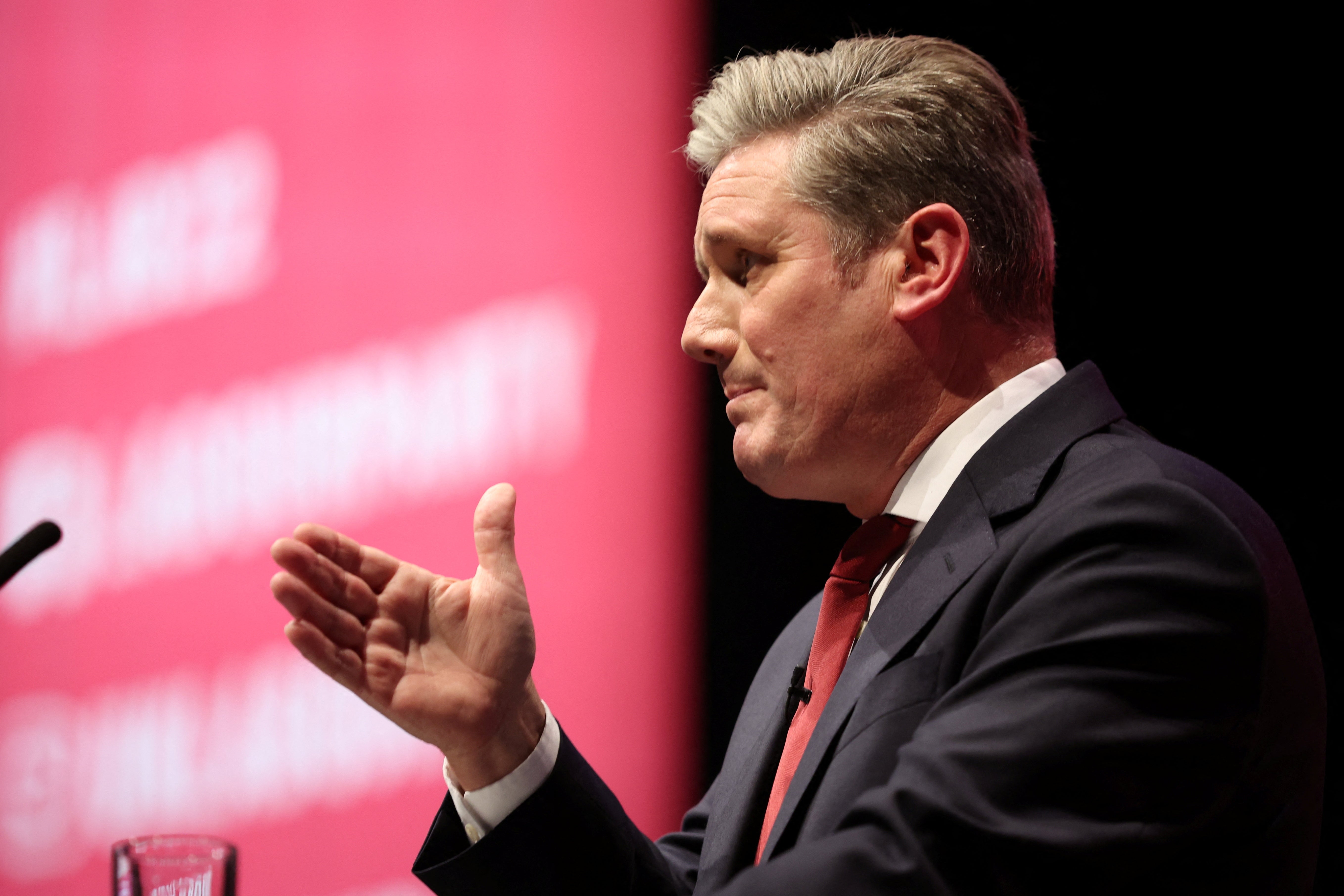Labour’s turnaround might be achieved within a single parliamentary term
At last, the party is bored of losing more than it is bored of Keir Starmer, says Sean O’Grady


Keir Starmer making a speech about solar power, wind farms and home insulation can’t be many people’s idea of a fun afternoon in Liverpool, but the Labour Party was certainly enjoying itself as he trudged his way through his green agenda.
They say Starmer is a dull speaker, but he got the assembled democratic socialists to their feet when he announced the prospective launch of a nationalised utility named Great British Energy.
His hair lustrous and groomed, his rhetoric more lively than usual, a few good jokes and a solidly centrist platform, Starmer made Labour sound like a party of government. Nato; the SNP; antisemitism; national interest before party interest; even levelling up: Starmer said all the right things. He mostly avoided Brexit, wisely. The old Blairite line about being the “political wing of the British people” is as bizarre and meaningless as it was in the 1990s, but it fitted the moment. The one crucial thing that was probably missing was a simple compelling reason why Labour would make people better off: families need to pay the bills.
All that said, when your party is in possession of a 17 percentage point lead in the polls and the government is in the middle of a humiliating economic crisis, you don’t need to try too hard. Rather than the bombastic showman, Starmer is now up against Liz Truss, who, with the best will in the world, makes Starmer look like a cross between Tony Blair and Jesus Christ.
It’s as well to consider the journey the party has been on. Less than three years ago, the party had its worst performance since the 1930s at the December 2019 general election. Boris Johnson “got Brexit done”, conquered the Red Wall and crushed Jeremy Corbyn. Labour was down to about 30 per cent of the vote. Even in the earlier stages of the pandemic, Labour lagged behind. But a combination of Tory collapse and Labour renewal and reform have restored the party’s fortunes – and to a degree almost inconceivable even two years ago, when Starmer delivered his first conference speech in a virtually empty room. He said at the time that his first task was just to persuade people to give Labour a hearing, and that succeeded. We are now well into the second phase of the recovery, and the beginnings of Labour looking and sounding more like a government-in-waiting. A strong shadow team relative to the government front bench is another novelty for Labour in opposition.
It is rare for a party to be turned around inside a single parliamentary term, allowing for the fact that Labour has lost the last four elections and has spent a total of 12 years trying to sort itself out after Gordon Brown slipped to a loss in 2010. Indeed, it is almost two decades since the last time Labour won a general election (2005), though some credit and recognition has to be given to Corbyn for the remarkable surprise of 2017, which deprived Theresa May of her majority.
Still, the general record has been depressing and recent by-election, local election and polling successes suggest that the days of disappointment may be coming to an end.
There are precedents. In 1992, after a fourth defeat in a row, finishing a poor seven percentage points behind John Major, few gave the Labour Party much hope, even under the managerial social democrat John Smith. There was much talk then, as now, of PR. Then came Tony Blair, modernisation, a floundering, exhausted Tory government and the New Labour landslide. Something of the same happened after the 1959 general election; a Tory landslide and a 100 majority was overturned by Harold Wilson in five short years.
There is a life cycle in governing parties that means they naturally decay. Intellectual and even physical exhaustion sets in, the backbenches fill up with the discarded and the disappointed, they tend to start talking to themselves and forget what they are for, a sort of political senility.
On the other side, oppositions can use the leisure time they are unwillingly gifted to scrap and argue, but also to formulate new policy and reconnect with the voters. They benefit from a natural feeling of "time for a change". Even more than that, though, after multiple election defeats, parties can simply become so hungry for power they stop squabbling and accept a more disciplined way of doing things. It’s how Labour got back in 1997, and how the Tories got back in 2010. It feels like Labour is, at last, bored with losing more than it is bored by Starmer.



Join our commenting forum
Join thought-provoking conversations, follow other Independent readers and see their replies
Comments